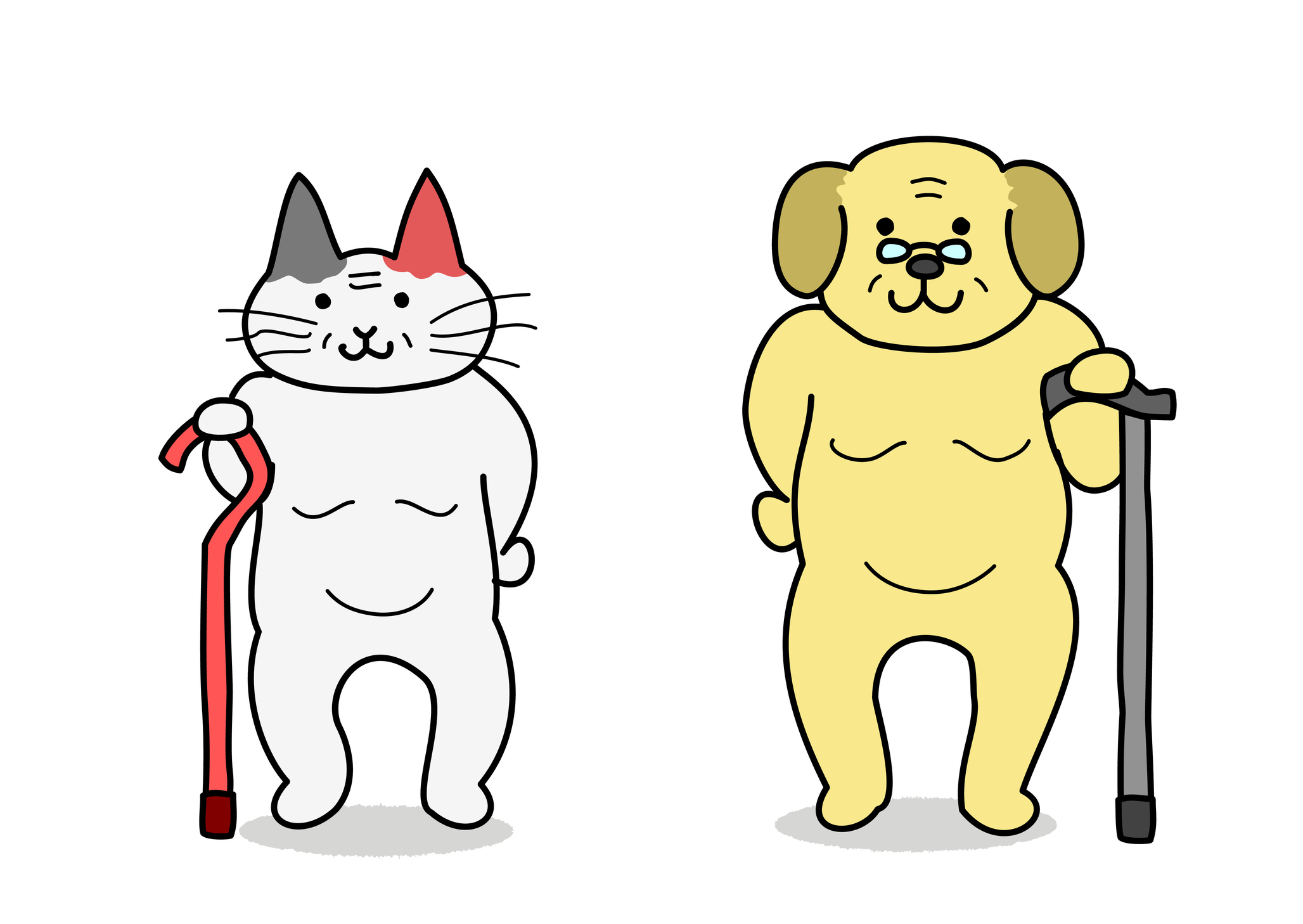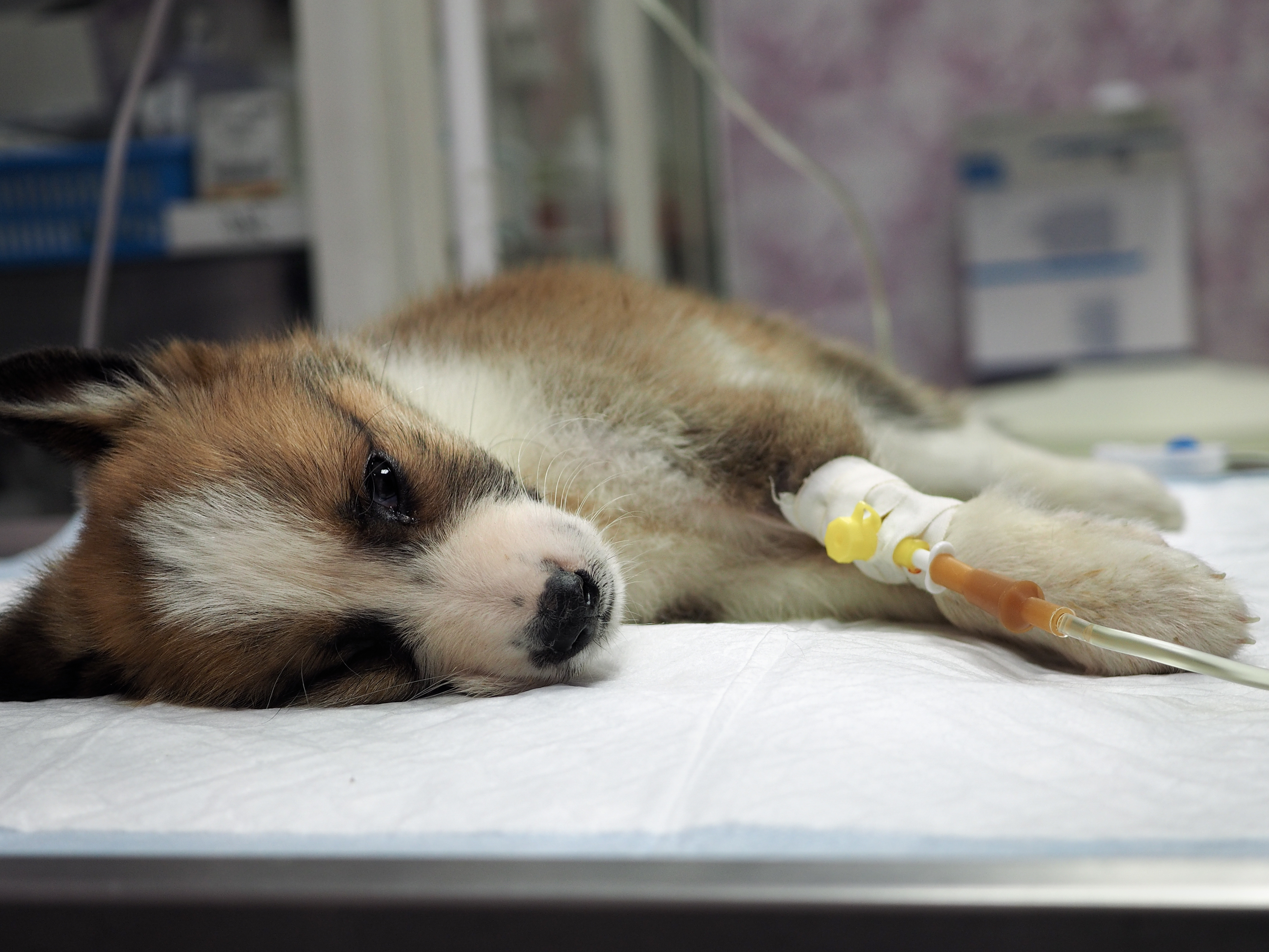
Pets Living Long Quality Lives
With modern advances in veterinary care, pet’s are living longer lives. How do we ensure those lives are quality? Right into the golden years…
Just like humans, as pets live longer lives they are more likely to develop age related illness. The risk of cancer, diabetes, obesity, arthritis, heart disease and other serious conditions all increase with age. Annual health checks can help our veterinarians diagnose, treat or even prevent problems before they become life-threatening. Early intervention usually yields the best results.

Step 1 – Know the Signs
Common Age Related Diseases in Dogs and what to look for:
- Arthritis – limping, stiffness, change in gait, difficulty standing, biting/chewing affected joint.
- Gum Disease – gums that bleed or are tender, red and swollen.
- Diabetes – frequent thirst and increased urination, weight loss, fatigue, irritability, recurring infections, blurred vision, and slow-healing cuts or bruises.
- Blindness – Cataracts make the eye appear to be covered by a white coating. Other signs of vision loss include bumping into things, falling, dilated pupils and red or irritated eyes.
- Kidney Disease – drinking more water, urinating more, and having accidents in the house. You may also see apathy, loss of appetite, weight loss, vomiting, and brown discoloring on the tongue, ammonia smell to their breath.
- Cancer – any lumps or bumps on body, changes in weight, sores that heal slowly, bleeding from the mouth, nose or ears. You may also see drooling, coughing, excessive panting, difficulty eating, and extreme tiredness.
- Dementia – forgetting familiar toys, housebreaking techniques and their owners. Senior dogs with CDS may even forget tricks, their name, and spend long periods of time staring blankly into space. Pacing is also common, as well as other repetitive, compulsive behaviors like walking in circles.
Common Age Related Diseases in Cats and what to look for:
- Kidney Disease – increased thirst, an increase in urine volume, weight loss, a lack of appetite, and vomiting.
- Heart Disease – Loss of appetite, lethargy, weak pulse, difficulty breathing, short snapping breathing sounds, inability to tolerate exercise or exertion.
- Diabetes – Increased thirst, sudden increase in appetite, sudden weight loss(despite an increase in appetite). Increased urination and lethargy.
- Arthritis – limping, stiffness, change in gait, difficulty standing.
- Hyperthyroidism – Weight loss, increased appetite, increased activity and restlessness, a matted, greasy or poor hair coat, fast heart rate, increased drinking, vomiting, diarrhea.
- Cancer – any lumps or bumps on body, sores that heal slowly, chronic weight loss, change in bowel/bladder habits.
- Dental Disease – Red or swollen gums, persistent bad breath, pus around the tooth, sensitivity around the mouth, pawing at the face, loose or missing teeth, drooling.
Step 2 – Speak to your Vet
If you notice any symptoms in your pet, give your vet a call. No one knows your pet like you do! The subtle changes you notice at home can lead to an early diagnosis and more successful treatment at the vet.
Step 3 – Follow the Plan
No matter what the diagnosis, developing a treatment plan with your vet and following that plan at home is best for your pet. A multi-modal treatment plan which includes medication, supplementation, exercise, prescription diet and regular rechecks is usually recommended. Your veterinary team can provide support and follow up for you also.
How old is old?
We begin to class dogs and cats as seniors at 7+ years old. If your pet is 7+ years old and you would like to schedule a check-up please head to our bookings page by clicking here.
Because it’s not enough for our pets’ lives to be long – unless we make those lives worth living!




